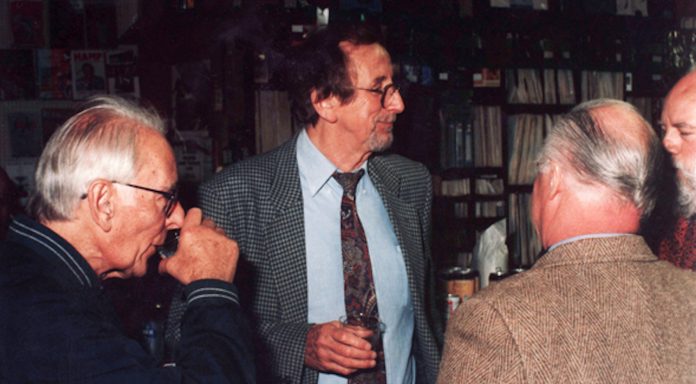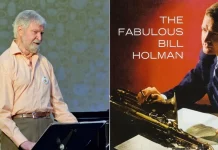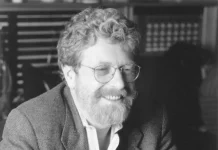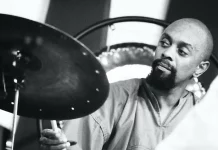
Alan Bates, well known for his releases on Black Lion and Candid, had a long history in jazz. Back in 1960 he was a co-founder of Interdisc, a company that imported labels such as Blue Note and Riverside into the UK for the first time. Before that only source of supply for British enthusiasts was expensive mail order. He later negotiated with Atlantic Records to make UK editions of their catalogue not available before in Europe.
Born in Derby on 26 August 1925, Alan became a record producer with a flair for finding good jazz musicians and recording them. He gained an international reputation which grew steadily over the years. In 1968 he founded Black Lion Records, which had two arms, one for British jazz musicians and one for international players. A good percentage of its output was reissued material and it put out music by Art Tatum, Ben Webster, Bud Powell, Don Byas, Coleman Hawkins, Mal Waldron and Duke Ellington.
Alan also had a subsidiary label called Freedom Records which issued free-jazz discs. Unlike many record company promoters Alan never appeared to favour one particular style or era of jazz but presented it all, from early traditional to free.
In the late 1980s, Alan bought the Candid label from its then owner, the crooner Andy Williams. Started as the jazz wing of Cadence Records in USA the label produced a number of excellent jazz discs before Cadence pulled the plug in 1961. Candid only functioned in America for two years. The first thing Bates did was to relaunch the classic catalogue of recordings from the original Candid label in 1960-61. These were strong, timeless records by people such as Max Roach, Charles Mingus, Booker Ervin, Booker Little, Don Ellis and Cecil Taylor. There was also a record by Lightnin’ Hopkins, the blues singer.
Once the early classics were available again, Bates set about making new records to expand the label. One of his first signings was singer Clare Teal who, in turn, made him aware of Jamie Cullum. Alan invited Jamie to lunch, discussed jazz with him and set up a gig for him. A short time later he signed Cullum to Candid and the early records launched Jamie’s career.
Cullum was not alone. Bates also signed Stacey Kent, whose early Candid records certainly helped her towards jazz recognition and international success. Others recorded on the revitalised label include David Newton, Donald Harrison, Kyle Eastwood, Gary Bartz, Greg Abate and Kenny Barron, along with many others. Alan was also responsible for releasing music from the original Candid catalogue that had never been issued. A good example is Cal Massey, a much underrated trumpeter who was a close friend of John Coltrane, recording his compositions and working with him frequently in clubs in the 1950s. Massey’s Blues For Coltrane LP finally came out in the 1980s, 20 years after it was recorded.
I interviewed Alan several years ago for Jazz Journal and he told me one of his favourite sessions was his Black Lion record of the Thelonious Monk trio in 1971. This set brought Monk together again with one of his favourite drummers, Art Blakey, and bassist Al McKinnon. A plan to record standards was sabotaged when Blakey said to Monk: “You don’t want to record that music. You want to record your own, surely?” Monk agreed, and did so. Alan talked about the original Candid releases and how much he respected Nat Hentoff, who produced and supervised them all. Talking about future recording plans I wondered if he’d ever considered getting Hentoff involved again. He thought the moment had passed and it was too late. He was probably right.
Alan Bates was always a good friend of jazz, and he did much to advance the music. He will be long remembered for making it easy for us to buy the Blue Note and Riverside records way back in the day and mostly for a fine catalogue of music on Black Lion and Candid Records. Alan Bates was a man who put his money where his heart was, right in the music, rescuing it, recording it and marketing it. Alan Bates died in January 2023, aged 97.















